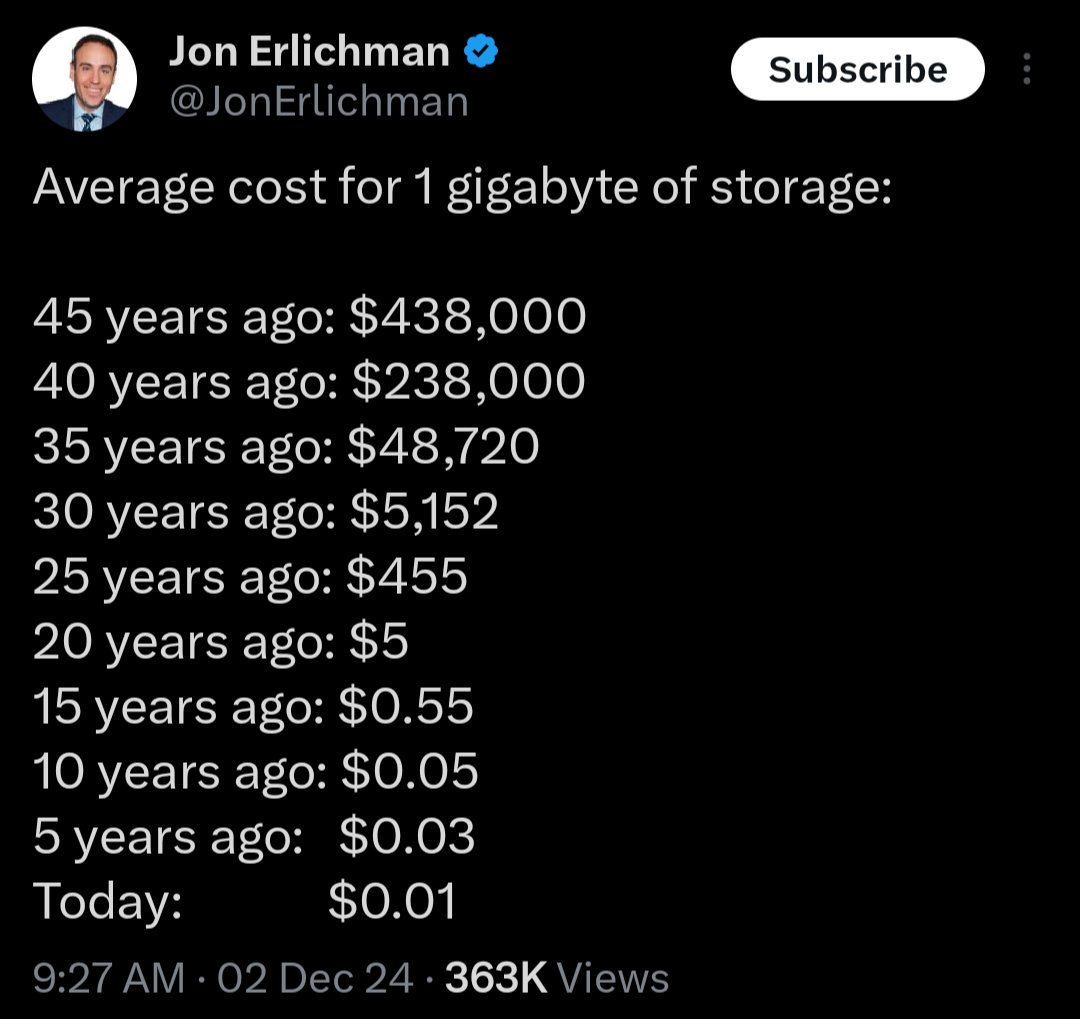this post was submitted on 07 Dec 2024
289 points (88.7% liked)
People Twitter
5380 readers
367 users here now
People tweeting stuff. We allow tweets from anyone.
RULES:
- Mark NSFW content.
- No doxxing people.
- Must be a tweet or similar
- No bullying or international politcs
- Be excellent to each other.
- Provide an archived link to the tweet (or similar) being shown if it's a major figure or a politician.
founded 2 years ago
MODERATORS
you are viewing a single comment's thread
view the rest of the comments
view the rest of the comments

I would have killed for 20Gb of space in 1999 on my personal PC. People ran with nowhere near that much space back then.
I was also the administrator of an HP mainframe at that time, and we ran the whole business on about 5Gb, and paid big $$$ for it.
We had one of these 12gb quantum bigfoots(5.25” drive) in ~1998 or so. Here’s a publication saying it was expected to cost $490 at launch. That’s a far cry from ~$450 per gigabyte.
Edit to add inflation graphic. Doesn’t add up even after accounting for inflation.
In '99 my 8GB disk died, and shortage of stock gave me a 12GB disk as warranty replacement.
Did you mean 20GB? Cause 20Gb = 2.5Gb
There is a difference between gigabytes and gigabits. 1 gigabyte (GB) = 8 gigabits (Gb)
The irony... Nobody talks about bits when it comes to storage, it's basically only used for transfer speeds. So it should be pretty easy to infer by the context.
Yes, and I think in the context, that is implied. I'm not a cable internet provider advertising "50 Mb" speeds and confusing people when they only get like 6MB.
By late 99 you could catch 10GB drives on sale for $99, dude. If you were cool you bought two of them and ran them in a raid configuration so you had 20GB of space and your drives read/write was way faster. 20GB single drives themselves were still a few hundred, but that was it. I think my pc from like 1995 had 4GB drive in it to start with.
Regardless of anything else, the posted numbers are obviously wack.